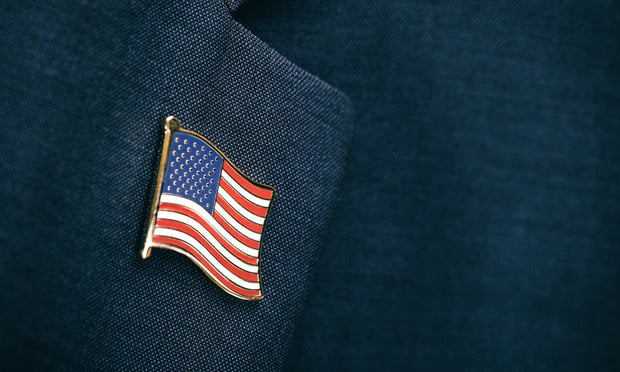 Most states have consumer protection laws, and courts across the country have debated whether such laws should apply to licensed professionals, including insurance producers.
Most states have consumer protection laws, and courts across the country have debated whether such laws should apply to licensed professionals, including insurance producers.
Although the cases are similar in nature, judges considering these issues have created a complex web of conflicting decisions based on highly subjective and speculative parameters. Let's explore these decisions, the rationales behind them and the defense of these claims.
Related: Read "Fortify Loss Control"
Roughly half of the states in the country permit such claims to be asserted against licensed professionals (doctors, lawyers, accountants, architects, engineers—and insurance producers), without any statutory or case law exceptions. New York and California, for example, appear to be included among these states.
The states where courts have found some or all professionals to be outside the scope of state, or "little" FTC Acts have suggested more than one reason to exempt professionals.
"Regulated" Professions Exemptions
One reason that some state courts have chosen to exempt licensed professionals stems from the license itself, as some states' courts yield to the regulatory scheme already in place for licensed professionals.
In Plemmons v. Blue Chip Insurance Services Inc., 904 A.2d 825 (N.J. Super. App. Div. 2006), the court was asked to decide whether an insurance broker should be subject to liability under New Jersey's Consumer Fraud Act. In Plemmons, a property owner had purchased property with the intent to convert it from residential to commercial.
Before the initial closing date, the owner contacted the insurance agent to obtain insurance coverage for the property, paid a premium and received a declaration sheet for a homeowner's policy. The policy was voided due to a delay in the closing date, and the agent allegedly never informed the owner that a commercial policy was required. Property damage occurred from a storm and allegedly from contractors for which the owner had no coverage.
The plaintiff claimed the broker violated the CFA, and should be subject to the enhanced penalties thereunder. The court disagreed, holding that insurance brokers were "semi-professionals" (are you as offended by that as I am?) who were excluded from liability under the CFA for the services they rendered within the scope of their professional licenses. Central to the court's reasoning was that insurance producers are already regulated by governmental licensing bodies. If the purpose of the CFA is to regulate conduct, the court reasoned, such purpose would not apply to "regulated" professions.
Trade or Commerce Exemptions
Similar to the FTC Act, most states require that allegedly unlawful conduct under consumer protection laws be made in "trade or commerce." What constitutes "trade or commerce" is subject to debate.
Related: Read "NY Court: No Duty to Read"
In Short v. Demopolis, 691 P.2d 163 (Wash. 1984), the Washington Supreme Court held that an attorney's conduct in the practice of law itself may not be "trade or commerce," but that "certain entrepreneurial aspects of the practice of law may fall within the 'trade or commerce' definition" of the little FTC act. (Emphasis added).
The Illinois Court of Appeals in Frahm v. Urkovich, 447 N.E.2d 1007 (Ill.Ct.App. 1983) adhered to a similar theme, and suggested that such cases "dealt only with the commercial aspects of the legal profession through activities which would have a direct effect on the consuming public and not with the practice of law itself." Although the court failed to describe the type of activity which would involve the practice of law but not have a direct effect on the consuming public, the court held that "trade or commerce" did not include the actual practice of law.
Non-Entrepreneurial Activities Exemptions
The rationale from the aforementioned cases perhaps set the stage for further distinction within the learned professions when determining whether consumer protection laws apply. Several state courts have created a subjective test to determine the applicability of a little FTC act: If the licensed professional is engaged in an "entrepreneurial activity," then the conduct falls within the scope of the little FTC act; if the activity involves the learned profession itself, then the little FTC act does not apply.
In Kessler v. Loftus, 994 F.Supp. 240 (D. Vt. 1997), a Vermont law firm represented to a divorce client that her claims against her former spouse's land were "adequate security" for a debt that was owed, and that the firm committed to provide her with "competent representation," neither of which she received. Although the court noted that it was required to construe Vermont's law in accordance with FTC precedent, and that attorneys received no blanket exemption from the law, the court held that representations of "adequate security" and "competent representation" were legal opinions and not entrepreneurial. Therefore, no viable claim could be asserted.
The hodgepodge of conflicting court interpretations exempting licensed professionals from state little FTC acts is difficult to understand, and presents a special challenge for producers writing business on a national level. Conduct in one state may be ruled unlawful, while the same conduct in another state under an identically worded statute may not be actionable. Even worse, the entire decision may be predicated on whether a judge subjectively determines the action at issue was one of entrepreneurialism or professional judgment.
From the perspective of defense counsel, the jurisdictions that have exempted professionals can provide guidance for arguments to be made in those jurisdictions that have not. It never hurts to advance an argument, preserve a basis for appeal, and try to make new (or change existing) case law in a particular state.
Related: Read "Social missteps"
From a producer and E&O insurer perspective, these issues can be tricky, and pose numerous questions relevant to both the defense and coverage of professionals. From a liability standpoint, where do you draw the line between "professional services" and "business activities"? And is that line different from a coverage standpoint? Is the coverage grant (i.e., definition of "professional services") in an insuring agreement more broad or narrow than the liability the insured is subject to in a particular jurisdiction? Is there an exclusion in the policy for activities that parallel the "business activities" contemplated by existing case law in a particular state?
On the issue of damages and indemnity, are treble damages imposed by consumer protection laws considered the equivalent of punitive damages that may or may not be covered by the E&O insurance policy? What if the policy form covers the activities of a professional which would fall within the purview of a state's consumer protection law, but contains an exclusion for punitive or statutory damages? In such a scenario, a conflict in the policy might arise as the insurer would have agreed to cover the professional activities giving rise to a consumer protection claim, but not the resulting damages.
These are questions worth considering by the insurer when drafting the policy form, the broker when reviewing her E&O coverage, and defense counsel when advancing the defense. It is never a bad idea to review your own E&O policy to determine if such claims are covered, and to ask your insurer if you have any questions.

Want to continue reading?
Become a Free PropertyCasualty360 Digital Reader
Your access to unlimited PropertyCasualty360 content isn’t changing.
Once you are an ALM digital member, you’ll receive:
- Breaking insurance news and analysis, on-site and via our newsletters and custom alerts
- Weekly Insurance Speak podcast featuring exclusive interviews with industry leaders
- Educational webcasts, white papers, and ebooks from industry thought leaders
- Critical converage of the employee benefits and financial advisory markets on our other ALM sites, BenefitsPRO and ThinkAdvisor
Already have an account? Sign In Now
© 2025 ALM Global, LLC, All Rights Reserved. Request academic re-use from www.copyright.com. All other uses, submit a request to [email protected]. For more information visit Asset & Logo Licensing.








